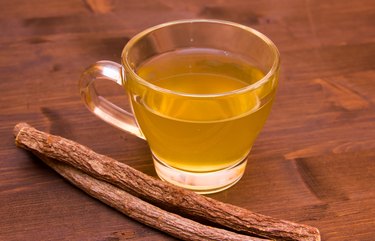
High blood pressure, or hypertension, is known as a silent killer because it often provides no warning signs or symptoms. According to the Centers for Disease Control and Prevention, hypertension affects 31.3 percent of adults in the United States. Many patients are prescribed atenolol to treat hypertension, but also for angina and to increase survival rate after a heart attack. If you have been prescribed atenolol, there are some foods that should be avoided in order to get the optimal effects it is desired to achieve.
Atenolol
Video of the Day
Atenolol is in a class of medications known as beta-blockers and works by relaxing blood vessels and slowing the heart rate. Atenolol comes in a tablet form that, according MedlinePlus, is usually taken once or twice a day. It is important that you take this medication exactly as directed by your physician and do not take more or less than prescribed. Do not stop taking this medication unless told to do so by your physician.
Video of the Day
Orange Juice
Orange juice should be avoided if you take atenolol. A 2005 study published in "European Journal of Clinical Pharmacology" looked at the effects of orange juice on the pharmacokinetics of atenolol. The researchers used 10 healthy volunteers who drank either 200 mL of orange juice or water three times a day for three days, and then twice a day on the fourth day. The subjects were given 50 mg of atenolol on the morning of day three. Blood pressure and heart rate information was collected at baseline and two, four, six and 10 hours after administration. What they discovered was that orange juice interfered with the absorption of atenolol and the desired effects on heart rate and blood pressure was not achieved.
Licorice
Licorice and licorice tea can increase blood pressure and may counteract the effects of atenolol. Most candy known as licorice sold in the U.S. is not actually made with licorice, but anise. If you consume licorice candy on a regular basis, check the label to see if licorice is actually an ingredient. Talk with your physician regarding your licorice intake. He may advise against licorice or licorice tea use, or adjust your atenolol dosage.
Considerations
If your physician has prescribed atenolol, talk with him regarding any other foods you should avoid. According to MedlinePlus, your physician may also advise you to follow a low-salt or low sodium diet, so foods high in salt content may also need to be avoided. Always take atenolol as prescribed and do not stop taking without being told to do so by your physician. Abruptly stopping atenolol can result in chest pain, heart attack or irregular heartbeats.